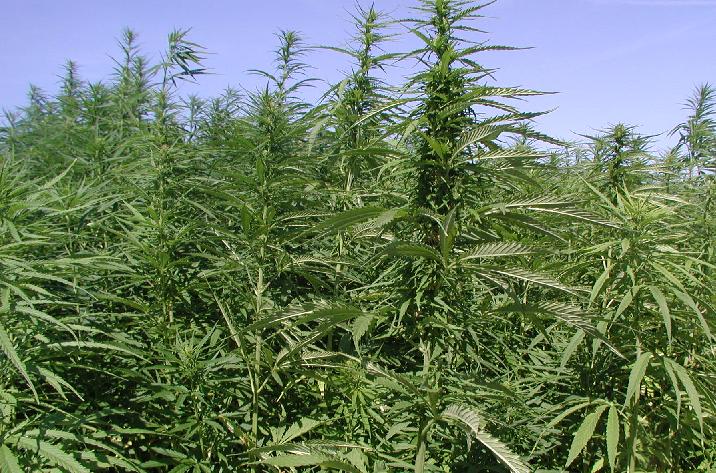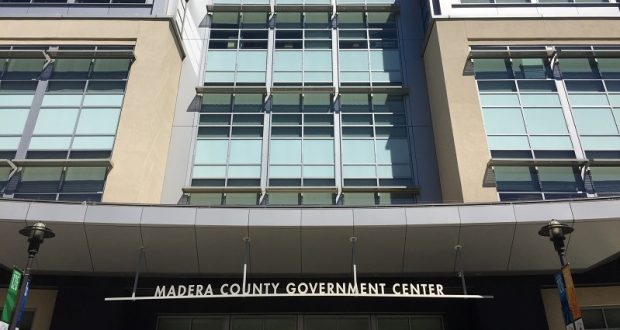MADERA — In a rare 3-2 split vote on Tuesday, the Madera County Board of Supervisors approved the first reading of a new ordinance regulating the growth of industrial hemp in the county. The updated regulations set the table for large-scale expansion of industrial hemp in the county, with some ag experts predicting the new “green” rush could lead to hemp becoming one of the county’s most valuable crops.

The two supervisors’ opposition to expanding hemp growth in the county revolved around the crop’s ties to recreational marijuana as well as to complaints from some about the skunk-like odor often associated with the crop.
At the request of District 5 Supervisor Tom Wheeler, several changes were made in the ordinance’s language regarding setbacks and how close to the county’s two incorporated cities hemp could be grown.
After today’s meeting, Wheeler, a vocal proponent of the effort to allow large-scale hemp cultivation in Madera County, said he “sure hopes” the new ordinance will have enough support next week to pass on second reading.
If the second reading is approved by a majority of supervisors on May 19, the new ordinance will become law in 30 days.
While industrial hemp is already grown in the county on a limited basis, the new ordinance — Chapter 5.26 of Madera County’s INDUSTRIAL HEMP Agricultural Code — opens the door to significantly larger field operations while establishing specific guidelines with regard to County liability, permitting and enforcement of a crop that has been grown in the U.S., of and on, for more than 200 years. (George Washington grew hemp on his Mt. Vernon farm.)
“This is a cash crop that Madera County can really make some money on,” Wheeler said last year when the new regulations were first being discussed.
According to Madera County Agricultural Commissioner-Sealer Stevie McNeill, some industrial hemp farmers around the country are reportedly grossing as much as $50,000 an acre. By comparison, almonds gross about $5,200 per acre. And industrial hemp does not take any more water to grow than cotton or almonds — and it can yield two crops a year, McNeill reported.
Now widely defined as an agricultural commodity, much of the new interest in industrial hemp is for its Cannabidiol (CBD) oil properties. CBD oil extract, already a multi-billion-dollar-a-year industry, is used for therapeutic purposes and also is being infused into a variety of products including lotions, ointments, drinks, snacks and human and animal food supplements.
Supervisor Wheeler is a big fan of CBD oil. “The stuff really works on my pain,” he said earlier this year.
The ag commissioner’s office has been working on updating County policy on industrial hemp since 2019, with new rules and revised regulations being issued by the California Department of Food and Agriculture on a regular basis over the past 12 months.
Madera County’s new hemp ordinance approved by the board today (May 12) allows for only one County permit to be issued per person or business.
Other highlights of the new ordinance:
- Parcels for commercial growers will be limited to a maximum of fifty (50) acres in size.
- Parcels for EARIs — Established Agricultural Research Institutions — will be limited to a maximum of one (1) acre. (EARIs are limited to those “Institutions of Higher Education” as defined under federal law.)
- Fields must be located at least one-quarter mile from any residences (excluding those of the growers, and those for whom the owners have provided written consent).
- Fields cannot be located within a half mile of Madera or Chowchilla city limits.
- Hemp growers will also be liable for all abatement and enforcement costs under the ordinance, including costs associated with multiple responses to cultivation locations for hemp thefts or other criminal activity related to hemp cultivation.
- And growers must consent to County inspection of cultivation locations to ensure compliance with the Ordinance and permit conditions.
Visually, the types of industrial hemp grown commercially for CBD oil are “indistinguishable” from the high THC cannabis strains used for recreational purposes so all industrial hemp growers in the county will have to place “high-visibility” signage in fields identifying their crop as hemp.
“The proposed Ordinance provides for a permit application fee that may be adjusted periodically as necessary to fully recover costs associated with application processing, and implementation and enforcement of the Ordinance,” the new regulation state. “Additional costs for enforcement and abatement may also be recovered from permittees through the cost recovery and multiple response provisions of the Ordinance.”
The Madera County Sheriff’s Office reported that over a six-week period in August and September of 2019, there were 87 calls for service related to plantings of industrial hemp in the county. All but one of those calls, which resulted in 46 arrests, came from the same location.




